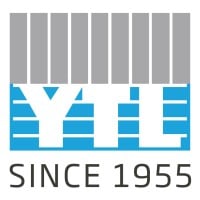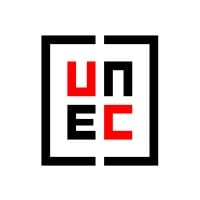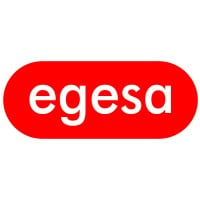
YTL Corporation Bhd Company Cyber Security Posture
ytl.comYTL Corporation Berhad [198201012898 (92647-H)] is an integrated infrastructure developer with extensive operations in countries including Malaysia, the United Kingdom, Singapore, Indonesia, Australia, Japan, Jordan and China and total assets of RM89.9 billion (USD20.3 billion) (as at 31 December 2024). The core businesses of the YTL Group comprise utilities, construction contracting, cement manufacturing, property development and investment, hotel development and management, e-commerce initiatives and internet-based education solutions and services. YTL Corp is amongst the largest companies listed on Bursa Malaysia Securities Berhad (the Kuala Lumpur stock exchange) and is a component of the FTSE Bursa Malaysia Mid 70 Index. YTL Corp has also had a secondary listing on the Tokyo Stock Exchange since 1996 and was the first non-Japanese Asian company to list on the Tokyo exchange. YTL Corp, together with its listed entities in Malaysia (YTL Power International Berhad, YTL Hospitality REIT and Malayan Cement Berhad (formerly known as Lafarge Malaysia Berhad)), has a combined market capitalisation of approximately RM48.5 billion (US10.5 billion) as at 31 December 2023. YTL Corp also has a stake in Singapore-listed Starhill Global REIT, which owns prime retail assets in Singapore, Malaysia, Japan, China and Australia. The YTL Group is committed to producing world class products and services at competitive prices. This corporate philosophy has enabled the YTL group to build up a growing customer base of more than 12 million customers globally over the last 60 years.
YCB Company Details
ytl-corporation-bhd
10,001+ employees
0
23
Construction
ytl.com
Scan still pending
YTL_3996533
In-progress
Between 900 and 1000
This score is AI-generated and less favored by cyber insurers, who prefer the TPRM score.
 YCB Global Score
YCB Global Score.png)

YTL Corporation Bhd Company Scoring based on AI Models
| Model Name | Date | Description | Current Score Difference | Score |
|---|---|---|---|---|
| AVERAGE-Industry | 03-12-2025 | This score represents the average cybersecurity rating of companies already scanned within the same industry. It provides a benchmark to compare an individual company's security posture against its industry peers. | N/A | Between 900 and 1000 |
YTL Corporation Bhd Company Cyber Security News & History
| Entity | Type | Severity | Impact | Seen | Url ID | Details | View |
|---|
YTL Corporation Bhd Company Subsidiaries

YTL Corporation Berhad [198201012898 (92647-H)] is an integrated infrastructure developer with extensive operations in countries including Malaysia, the United Kingdom, Singapore, Indonesia, Australia, Japan, Jordan and China and total assets of RM89.9 billion (USD20.3 billion) (as at 31 December 2024). The core businesses of the YTL Group comprise utilities, construction contracting, cement manufacturing, property development and investment, hotel development and management, e-commerce initiatives and internet-based education solutions and services. YTL Corp is amongst the largest companies listed on Bursa Malaysia Securities Berhad (the Kuala Lumpur stock exchange) and is a component of the FTSE Bursa Malaysia Mid 70 Index. YTL Corp has also had a secondary listing on the Tokyo Stock Exchange since 1996 and was the first non-Japanese Asian company to list on the Tokyo exchange. YTL Corp, together with its listed entities in Malaysia (YTL Power International Berhad, YTL Hospitality REIT and Malayan Cement Berhad (formerly known as Lafarge Malaysia Berhad)), has a combined market capitalisation of approximately RM48.5 billion (US10.5 billion) as at 31 December 2023. YTL Corp also has a stake in Singapore-listed Starhill Global REIT, which owns prime retail assets in Singapore, Malaysia, Japan, China and Australia. The YTL Group is committed to producing world class products and services at competitive prices. This corporate philosophy has enabled the YTL group to build up a growing customer base of more than 12 million customers globally over the last 60 years.
Access Data Using Our API

Get company history
.png)
YCB Cyber Security News
YTL Corporation Berhad Third Quarter 2025 Earnings: EPS: RM0.038 (vs RM0.045 in 3Q 2024)
Key Financial Results · Revenue: RM7.32b (up 1.5% from 3Q 2024). · Net income: RM419.4m (down 16% from 3Q 2024). · Profit margin: 5.7% (down from ...
YTL Corporation Berhad Second Quarter 2025 Earnings: EPS: RM0.053 (vs RM0.054 in 2Q 2024)
Key Financial Results · Revenue: RM8.06b (up 7.0% from 2Q 2024). · Net income: RM580.0m (down 1.6% from 2Q 2024). · Profit margin: 7.2% (down ...
AI-Powered Ryt Bank Sets Out to Transform Banking in Malaysia
Ryt Bank is a bank built by Malaysians, for Malaysians. By empowering exceptional local talent, the bank has developed a next-generation AI-powered platform.
AI, data science and cyber security: Adapting education for the future
The programme prepares graduates for careers such as security analyst, information security manager and cyber security specialist. The ...
Sea-YTL Consortium promotes Ts. Zhon Teck Tan to Head of Cyber & Offense Security Risk for Digital Banking
The consortium recently promoted former SeaMoney Head of Cyber Risk Ts. Zhon Teck Tan to lead the Digital Banking department as Head of Cyber ...
Cover Story: Banking for the underserved
In April 2022, Bank Negara Malaysia issued five digital banking licences, signalling a step towards financial inclusion in the country.
YTL Corporation Berhad's (KLSE:YTL) Intrinsic Value Is Potentially 100% Above Its Share Price
Key Insights. YTL Corporation Berhad's estimated fair value is RM6.06 based on 2 Stage Free Cash Flow to Equity.
Data centre surge boosts M’sia tech and economic growth
Malaysia's data centre market is growing rapidly due to its strategic location, supportive policies and increasing digital infrastructure needs, ...
Telcos conclude 2022 with 5G rollout, Celcom-Digi merger
Malaysia's telecommunications (telco) industry is ending the year with the completion of the Celcom Axiata Bhd-Digi.Com Bhd merger and the 5G rollout.

YCB Similar Companies

MS Construction LLC FZ
MS Construction (Contracting Company) is one of the joint ventures between Meydan Group and Sobha Group. This joint venture is formed to construct 45million square feet of freehold land into an exclusive destination of luxury villas and mansions surrounded by expansive green parks and inland lagoons

Amanco Wavin
Wavin faz parte de Orbia, uma comunidade de empresas que trabalham juntas para enfrentar alguns dos desafios mais complexos do mundo. Estamos ligados por um propósito comum: Melhorar a Vida ao Redor do Mundo. Sobre a Wavin: A Wavin tem uma história de mais de 60 anos, é a marca líder e mais con

[UNEC] United Engineering Construction
[UNEC] is a multi-award-winning construction company with more than 40 years of expertise in the region. Our vast experience, forward-thinking innovations and commitment to the highest standards in professionalism, safety and efficiency have made us a trusted partner to the developers of some of the

Egesa Engenharia
A Egesa Engenharia S.A. é uma empresa de engenharia e construção pesada fundada em 1962 em Minas Gerais. Possui sede na cidade de Belo Horizonte e escritórios regionais nas principais capitais do país, como Brasília, São Paulo, Rio de Janeiro, entre outras. Com cerca de 10.000 empregados, atua nos s

AZFEN
Mission of "Azfen" J.V. is to perform first-class construction and engineering work for oil companies. Experience and innovations have allowed us to provide invaluable service to oil companies in the Caspian Region. "Azfen" J.V. have built pipelines, platforms, and terminals for large oil projects.

Tata Projects
Tata Projects is one of the most admired Technology led Engineering, Procurement and Construction (EPC) companies in India. We have expertise in providing sustainable solutions in the execution of large and complex urban and industrial infrastructure projects while also demonstrating strong presence

Frequently Asked Questions (FAQ) on Cybersecurity Incidents
YCB CyberSecurity History Information
Total Incidents: According to Rankiteo, YCB has faced 0 incidents in the past.
Incident Types: As of the current reporting period, YCB has not encountered any cybersecurity incidents.
Total Financial Loss: The total financial loss from these incidents is estimated to be {total_financial_loss}.
Cybersecurity Posture: The company's overall cybersecurity posture is described as YTL Corporation Berhad [198201012898 (92647-H)] is an integrated infrastructure developer with extensive operations in countries including Malaysia, the United Kingdom, Singapore, Indonesia, Australia, Japan, Jordan and China and total assets of RM89.9 billion (USD20.3 billion) (as at 31 December 2024). The core businesses of the YTL Group comprise utilities, construction contracting, cement manufacturing, property development and investment, hotel development and management, e-commerce initiatives and internet-based education solutions and services. YTL Corp is amongst the largest companies listed on Bursa Malaysia Securities Berhad (the Kuala Lumpur stock exchange) and is a component of the FTSE Bursa Malaysia Mid 70 Index. YTL Corp has also had a secondary listing on the Tokyo Stock Exchange since 1996 and was the first non-Japanese Asian company to list on the Tokyo exchange. YTL Corp, together with its listed entities in Malaysia (YTL Power International Berhad, YTL Hospitality REIT and Malayan Cement Berhad (formerly known as Lafarge Malaysia Berhad)), has a combined market capitalisation of approximately RM48.5 billion (US10.5 billion) as at 31 December 2023. YTL Corp also has a stake in Singapore-listed Starhill Global REIT, which owns prime retail assets in Singapore, Malaysia, Japan, China and Australia. The YTL Group is committed to producing world class products and services at competitive prices. This corporate philosophy has enabled the YTL group to build up a growing customer base of more than 12 million customers globally over the last 60 years..
Detection and Response: The company detects and responds to cybersecurity incidents through {description_of_detection_and_response_process}.
Incident Details
Incident 1: Ransomware Attack
Title: {Incident_Title}
Description: {Brief_description_of_the_incident}
Date Detected: {Detection_Date}
Date Publicly Disclosed: {Disclosure_Date}
Date Resolved: {Resolution_Date}
Type: {Type_of_Attack}
Attack Vector: {Attack_Vector}
Vulnerability Exploited: {Vulnerability}
Threat Actor: {Threat_Actor}
Motivation: {Motivation}
Incident 2: Data Breach
Title: {Incident_Title}
Description: {Brief_description_of_the_incident}
Date Detected: {Detection_Date}
Date Publicly Disclosed: {Disclosure_Date}
Date Resolved: {Resolution_Date}
Type: {Type_of_Attack}
Attack Vector: {Attack_Vector}
Vulnerability Exploited: {Vulnerability}
Threat Actor: {Threat_Actor}
Motivation: {Motivation}
Common Attack Types: As of now, the company has not encountered any reported incidents involving common cyberattacks.
Identification of Attack Vectors: The company identifies the attack vectors used in incidents through {description_of_identification_process}.
Impact of the Incidents
Incident 1: Ransomware Attack
Financial Loss: {Financial_Loss}
Data Compromised: {Data_Compromised}
Systems Affected: {Systems_Affected}
Downtime: {Downtime}
Operational Impact: {Operational_Impact}
Conversion Rate Impact: {Conversion_Rate_Impact}
Revenue Loss: {Revenue_Loss}
Customer Complaints: {Customer_Complaints}
Brand Reputation Impact: {Brand_Reputation_Impact}
Legal Liabilities: {Legal_Liabilities}
Identity Theft Risk: {Identity_Theft_Risk}
Payment Information Risk: {Payment_Information_Risk}
Incident 2: Data Breach
Financial Loss: {Financial_Loss}
Data Compromised: {Data_Compromised}
Systems Affected: {Systems_Affected}
Downtime: {Downtime}
Operational Impact: {Operational_Impact}
Conversion Rate Impact: {Conversion_Rate_Impact}
Revenue Loss: {Revenue_Loss}
Customer Complaints: {Customer_Complaints}
Brand Reputation Impact: {Brand_Reputation_Impact}
Legal Liabilities: {Legal_Liabilities}
Identity Theft Risk: {Identity_Theft_Risk}
Payment Information Risk: {Payment_Information_Risk}
Average Financial Loss: The average financial loss per incident is {average_financial_loss}.
Commonly Compromised Data Types: The types of data most commonly compromised in incidents are {list_of_commonly_compromised_data_types}.
Incident 1: Ransomware Attack
Entity Name: {Entity_Name}
Entity Type: {Entity_Type}
Industry: {Industry}
Location: {Location}
Size: {Size}
Customers Affected: {Customers_Affected}
Incident 2: Data Breach
Entity Name: {Entity_Name}
Entity Type: {Entity_Type}
Industry: {Industry}
Location: {Location}
Size: {Size}
Customers Affected: {Customers_Affected}
Response to the Incidents
Incident 1: Ransomware Attack
Incident Response Plan Activated: {Yes/No}
Third Party Assistance: {Yes/No}
Law Enforcement Notified: {Yes/No}
Containment Measures: {Containment_Measures}
Remediation Measures: {Remediation_Measures}
Recovery Measures: {Recovery_Measures}
Communication Strategy: {Communication_Strategy}
Adaptive Behavioral WAF: {Adaptive_Behavioral_WAF}
On-Demand Scrubbing Services: {On_Demand_Scrubbing_Services}
Network Segmentation: {Network_Segmentation}
Enhanced Monitoring: {Enhanced_Monitoring}
Incident 2: Data Breach
Incident Response Plan Activated: {Yes/No}
Third Party Assistance: {Yes/No}
Law Enforcement Notified: {Yes/No}
Containment Measures: {Containment_Measures}
Remediation Measures: {Remediation_Measures}
Recovery Measures: {Recovery_Measures}
Communication Strategy: {Communication_Strategy}
Adaptive Behavioral WAF: {Adaptive_Behavioral_WAF}
On-Demand Scrubbing Services: {On_Demand_Scrubbing_Services}
Network Segmentation: {Network_Segmentation}
Enhanced Monitoring: {Enhanced_Monitoring}
Incident Response Plan: The company's incident response plan is described as {description_of_incident_response_plan}.
Third-Party Assistance: The company involves third-party assistance in incident response through {description_of_third_party_involvement}.
Data Breach Information
Incident 2: Data Breach
Type of Data Compromised: {Type_of_Data}
Number of Records Exposed: {Number_of_Records}
Sensitivity of Data: {Sensitivity_of_Data}
Data Exfiltration: {Yes/No}
Data Encryption: {Yes/No}
File Types Exposed: {File_Types}
Personally Identifiable Information: {Yes/No}
Prevention of Data Exfiltration: The company takes the following measures to prevent data exfiltration: {description_of_prevention_measures}.
Handling of PII Incidents: The company handles incidents involving personally identifiable information (PII) through {description_of_handling_process}.
Ransomware Information
Incident 1: Ransomware Attack
Ransom Demanded: {Ransom_Amount}
Ransom Paid: {Ransom_Paid}
Ransomware Strain: {Ransomware_Strain}
Data Encryption: {Yes/No}
Data Exfiltration: {Yes/No}
Ransom Payment Policy: The company's policy on paying ransoms in ransomware incidents is described as {description_of_ransom_payment_policy}.
Data Recovery from Ransomware: The company recovers data encrypted by ransomware through {description_of_data_recovery_process}.
Regulatory Compliance
Incident 1: Ransomware Attack
Regulations Violated: {Regulations_Violated}
Fines Imposed: {Fines_Imposed}
Legal Actions: {Legal_Actions}
Regulatory Notifications: {Regulatory_Notifications}
Incident 2: Data Breach
Regulations Violated: {Regulations_Violated}
Fines Imposed: {Fines_Imposed}
Legal Actions: {Legal_Actions}
Regulatory Notifications: {Regulatory_Notifications}
Regulatory Frameworks: The company complies with the following regulatory frameworks regarding cybersecurity: {list_of_regulatory_frameworks}.
Ensuring Regulatory Compliance: The company ensures compliance with regulatory requirements through {description_of_compliance_measures}.
Lessons Learned and Recommendations
Incident 1: Ransomware Attack
Lessons Learned: {Lessons_Learned}
Incident 2: Data Breach
Lessons Learned: {Lessons_Learned}
Incident 1: Ransomware Attack
Recommendations: {Recommendations}
Incident 2: Data Breach
Recommendations: {Recommendations}
Key Lessons Learned: The key lessons learned from past incidents are {list_of_key_lessons_learned}.
Implemented Recommendations: The company has implemented the following recommendations to improve cybersecurity: {list_of_implemented_recommendations}.
References
Additional Resources: Stakeholders can find additional resources on cybersecurity best practices at {list_of_additional_resources}.
Investigation Status
Incident 1: Ransomware Attack
Investigation Status: {Investigation_Status}
Incident 2: Data Breach
Investigation Status: {Investigation_Status}
Communication of Investigation Status: The company communicates the status of incident investigations to stakeholders through {description_of_communication_process}.
Stakeholder and Customer Advisories
Incident 1: Ransomware Attack
Stakeholder Advisories: {Stakeholder_Advisories}
Customer Advisories: {Customer_Advisories}
Incident 2: Data Breach
Stakeholder Advisories: {Stakeholder_Advisories}
Customer Advisories: {Customer_Advisories}
Advisories Provided: The company provides the following advisories to stakeholders and customers following an incident: {description_of_advisories_provided}.
Initial Access Broker
Incident 1: Ransomware Attack
Entry Point: {Entry_Point}
Reconnaissance Period: {Reconnaissance_Period}
Backdoors Established: {Backdoors_Established}
High Value Targets: {High_Value_Targets}
Data Sold on Dark Web: {Yes/No}
Incident 2: Data Breach
Entry Point: {Entry_Point}
Reconnaissance Period: {Reconnaissance_Period}
Backdoors Established: {Backdoors_Established}
High Value Targets: {High_Value_Targets}
Data Sold on Dark Web: {Yes/No}
Monitoring and Mitigation of Initial Access Brokers: The company monitors and mitigates the activities of initial access brokers through {description_of_monitoring_and_mitigation_measures}.
Post-Incident Analysis
Incident 1: Ransomware Attack
Root Causes: {Root_Causes}
Corrective Actions: {Corrective_Actions}
Incident 2: Data Breach
Root Causes: {Root_Causes}
Corrective Actions: {Corrective_Actions}
Post-Incident Analysis Process: The company's process for conducting post-incident analysis is described as {description_of_post_incident_analysis_process}.
Corrective Actions Taken: The company has taken the following corrective actions based on post-incident analysis: {list_of_corrective_actions_taken}.
Additional Questions
General Information
Ransom Payment History: The company has {paid/not_paid} ransoms in the past.
Last Ransom Demanded: The amount of the last ransom demanded was {last_ransom_amount}.
Last Attacking Group: The attacking group in the last incident was {last_attacking_group}.
Incident Details
Most Recent Incident Detected: The most recent incident detected was on {most_recent_incident_detected_date}.
Most Recent Incident Publicly Disclosed: The most recent incident publicly disclosed was on {most_recent_incident_publicly_disclosed_date}.
Most Recent Incident Resolved: The most recent incident resolved was on {most_recent_incident_resolved_date}.
Impact of the Incidents
Highest Financial Loss: The highest financial loss from an incident was {highest_financial_loss}.
Most Significant Data Compromised: The most significant data compromised in an incident was {most_significant_data_compromised}.
Most Significant System Affected: The most significant system affected in an incident was {most_significant_system_affected}.
Response to the Incidents
Third-Party Assistance in Most Recent Incident: The third-party assistance involved in the most recent incident was {third_party_assistance_in_most_recent_incident}.
Containment Measures in Most Recent Incident: The containment measures taken in the most recent incident were {containment_measures_in_most_recent_incident}.
Data Breach Information
Most Sensitive Data Compromised: The most sensitive data compromised in a breach was {most_sensitive_data_compromised}.
Number of Records Exposed: The number of records exposed in the most significant breach was {number_of_records_exposed}.
Ransomware Information
Highest Ransom Demanded: The highest ransom demanded in a ransomware incident was {highest_ransom_demanded}.
Highest Ransom Paid: The highest ransom paid in a ransomware incident was {highest_ransom_paid}.
Regulatory Compliance
Highest Fine Imposed: The highest fine imposed for a regulatory violation was {highest_fine_imposed}.
Most Significant Legal Action: The most significant legal action taken for a regulatory violation was {most_significant_legal_action}.
Lessons Learned and Recommendations
Most Significant Lesson Learned: The most significant lesson learned from past incidents was {most_significant_lesson_learned}.
Most Significant Recommendation Implemented: The most significant recommendation implemented to improve cybersecurity was {most_significant_recommendation_implemented}.
References
Most Recent Source: The most recent source of information about an incident is {most_recent_source}.
Most Recent URL for Additional Resources: The most recent URL for additional resources on cybersecurity best practices is {most_recent_url}.
Investigation Status
Current Status of Most Recent Investigation: The current status of the most recent investigation is {current_status_of_most_recent_investigation}.
Stakeholder and Customer Advisories
Most Recent Stakeholder Advisory: The most recent stakeholder advisory issued was {most_recent_stakeholder_advisory}.
Most Recent Customer Advisory: The most recent customer advisory issued was {most_recent_customer_advisory}.
Initial Access Broker
Most Recent Entry Point: The most recent entry point used by an initial access broker was {most_recent_entry_point}.
Most Recent Reconnaissance Period: The most recent reconnaissance period for an incident was {most_recent_reconnaissance_period}.
Post-Incident Analysis
Most Significant Root Cause: The most significant root cause identified in post-incident analysis was {most_significant_root_cause}.
Most Significant Corrective Action: The most significant corrective action taken based on post-incident analysis was {most_significant_corrective_action}.
What Do We Measure?
















Every week, Rankiteo analyzes billions of signals to give organizations a sharper, faster view of emerging risks. With deeper, more actionable intelligence at their fingertips, security teams can outpace threat actors, respond instantly to Zero-Day attacks, and dramatically shrink their risk exposure window.
These are some of the factors we use to calculate the overall score:
Identify exposed access points, detect misconfigured SSL certificates, and uncover vulnerabilities across the network infrastructure.
Gain visibility into the software components used within an organization to detect vulnerabilities, manage risk, and ensure supply chain security.
Monitor and manage all IT assets and their configurations to ensure accurate, real-time visibility across the company's technology environment.
Leverage real-time insights on active threats, malware campaigns, and emerging vulnerabilities to proactively defend against evolving cyberattacks.




